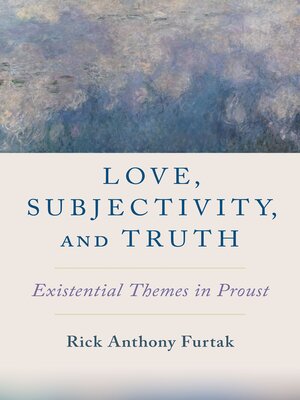
Sign up to save your library
With an OverDrive account, you can save your favorite libraries for at-a-glance information about availability. Find out more about OverDrive accounts.
Find this title in Libby, the library reading app by OverDrive.



Search for a digital library with this title
Title found at these libraries:
| Loading... |
Love, Subjectivity, and Truth engages in a lively manner with the overlapping areas of philosophy and literature, philosophy of emotions, and existential thought. ?Subjective truth,? a phrase used in Proust's novel In Search of Lost Time, is rich with existential connotations. It invokes Kierkegaard above all, but significantly Nietzsche as well, and other philosophers who thematize love, subjectivity, and truth. In Search of Lost Time is especially concerned about what we can know about others through love. Insofar as it conveys and analyzes experience, the novel is capable not only of exploring existential issues but also of doing something like phenomenology. What we know is shaped by our way of knowing, just as the properties of visible, colored objects are determined by the wavelengths of light our eyes can see. Nowhere does the subjective basis of our awareness appear so evident as it does when we view things through loving eyes. In Proust's novel we find skeptical views about love expressed again and again. However, we also note countercurrents, in which love is shown to provide a unique sort of insight. At those times, love seems to be a prerequisite of veridical apprehension. Love, Subjectivity, and Truth investigates this tension as it is played out in Proust's fiction.






